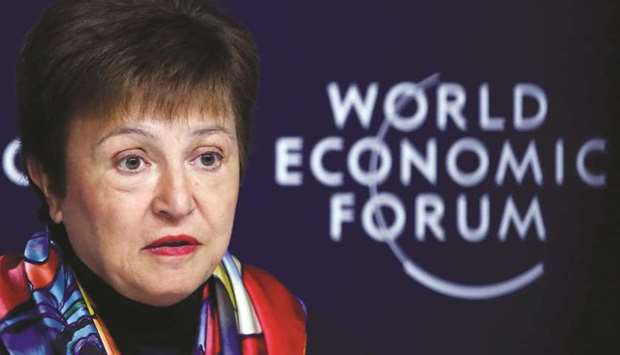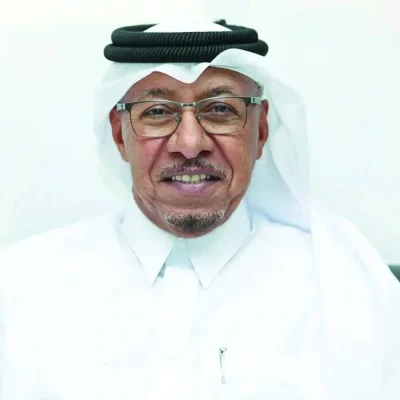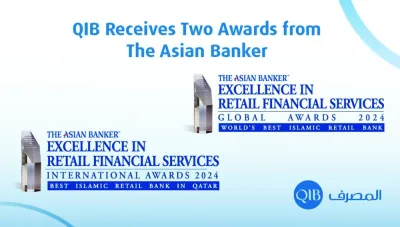In the aftermath of World War II, the victors established a set of institutions that have underpinned the world order ever since. While those institutions have often been contested, they have proved to be highly resilient. But this does not mean they are invulnerable. On the contrary, their effectiveness may be gradually eroded – especially when they are used as geopolitical pawns.
Academic research offers abundant analysis of the factors that boost institutional hardiness, and those that tend to hasten institutional failure. One key message – which my own experience at the World Bank and in the European Union confirms – is that institutions thrive when there is trust. Small wonder, then, that the international order’s institutional arrangements are at risk.
Former US president Donald Trump’s administration threw the institutional-trust deficit into sharp relief. In just four years, Trump either defunded or disengaged from several United Nations agencies and multilateral agreements, paralysed the World Trade Organisation, and withdrew the United States from the World Health Organisation.
The multilateral system passed the stress tests of Trump’s attacks – but just barely. Moreover, Trump’s departure from the White House did not bring the reprieve, let alone revival, for which some hoped. Instead, according to the 2021 Edelman Trust Barometer, global trust in institutions has continued to decline.
The Covid-19 pandemic is largely to blame. Despite some successes, multilateral institutions failed to bring about the collaboration needed to address the crisis effectively. The highly uneven distribution of vaccine doses is a case in point.
Some have already written off the post-WWII institutions, arguing that they have outlived their usefulness. For these critics, talk of reforming bodies like the UN Security Council or the International Monetary Fund merely distracts from the more important task of “figuring out what a new order should look like.” Should it, for example, rely more on ad hoc formations, like those that have proliferated in recent years?
The answer to that question is plainly no. After all, those formations have so far failed to produce anything close to the kinds of multilateral cooperation the world needs.
To be sure, traditional governance frameworks have indeed fallen short. For example, as Mark Leonard of the European Council on Foreign Relations recently observed, UN Climate Change Conferences have “failed to produce a model of global governance that can tame power politics, let alone forge a sense of shared destiny among countries.” The just-concluded COP26 in Glasgow lent further support to this conclusion.
But while post-WWII international institutions are far from perfect, their collective record suggests that they remain the world’s best hope for coping with the complex challenges ahead. As Harvard University’s Joseph S Nye recently pointed out, established institutions entrench “valuable patterns of behaviour,” as they underpin a “regime of rules, norms, networks, and expectations that create social roles, which entail moral obligations.”
Of course, the mere existence of institutions is not enough to deliver solutions to the world’s problems. As Nye put it, they must be used in ways that “bind others to support global public goods” that advance shared long-term interests.
That is not what the EU did last week, when the debate over the taxonomy of green investment devolved into an acerbic exchange between the bloc’s renewable heavyweights and those who view gas and nuclear as integral to any green transition. This debate will surely dent the EU’s painstakingly built reputation as a global standard-bearer on sustainability.
If such division exists within the EU, it is difficult to imagine how consensus can be reached within global organisations, especially at a time of intensifying great-power competition. In fact, nowadays, international institutions are becoming a theatre – and often collateral damage – of geopolitical confrontation.
In recent years, China has taken steps to expand its influence within multilateral institutions. It now heads four of the 15 UN agencies – a gain that has helped to protect it from international scrutiny.
China is also at the centre of the recent data-rigging scandal at the World Bank. An independent investigation carried out by the US law firm WilmerHale found irregularities in the data used to determine China’s ranking in the 2018 and 2020 editions of the Doing Business index.
IMF Managing Director Kristalina Georgieva, who was serving as the World Bank’s Chief Executive Officer in 2018, was accused of playing a central role in the effort to boost China’s ranking. Within weeks, Doing Business was discontinued, and Georgieva’s IMF job was on the line.
Ultimately, the IMF board stood behind Georgieva. Furthermore, the WilmerHale investigation has faced heavy criticism for its lack of hard evidence and clear display of bias. Joseph E Stiglitz has aptly likened the entire episode to a “coup attempt,” aimed at neutralising Georgieva’s efforts to advance bold reforms. Georgieva has also been justly praised for her leadership during the pandemic, including the IMF’s unprecedented use of special drawing rights.
Nonetheless, the Doing Business scandal could do lasting damage to an already beleaguered international system. Beyond eroding trust in the World Bank and the IMF, the debacle has highlighted how bilateral tensions can shape – and distort – the activities of multilateral institutions.
While the Covid-19 pandemic has highlighted international institutions’ shortcomings, it has also made plain, yet again, that the biggest challenges today are global in nature. In this context, defending multilateral institutions is hardly a display of “nostalgia.” Rather, it is an act of realism. Few would benefit from the unravelling of the existing order. The question is whether public trust can be restored before it is too late. — Project Syndicate
? Ana Palacio, a former minister of foreign affairs of Spain and former senior vice-president and general counsel of the World Bank Group, is a visiting lecturer at Georgetown University.

IN THE EYE OF STORM: Kristalina Georgieva has been praised for her leadership during the pandemic, including the IMF’s unprecedented use of special drawing rights.


